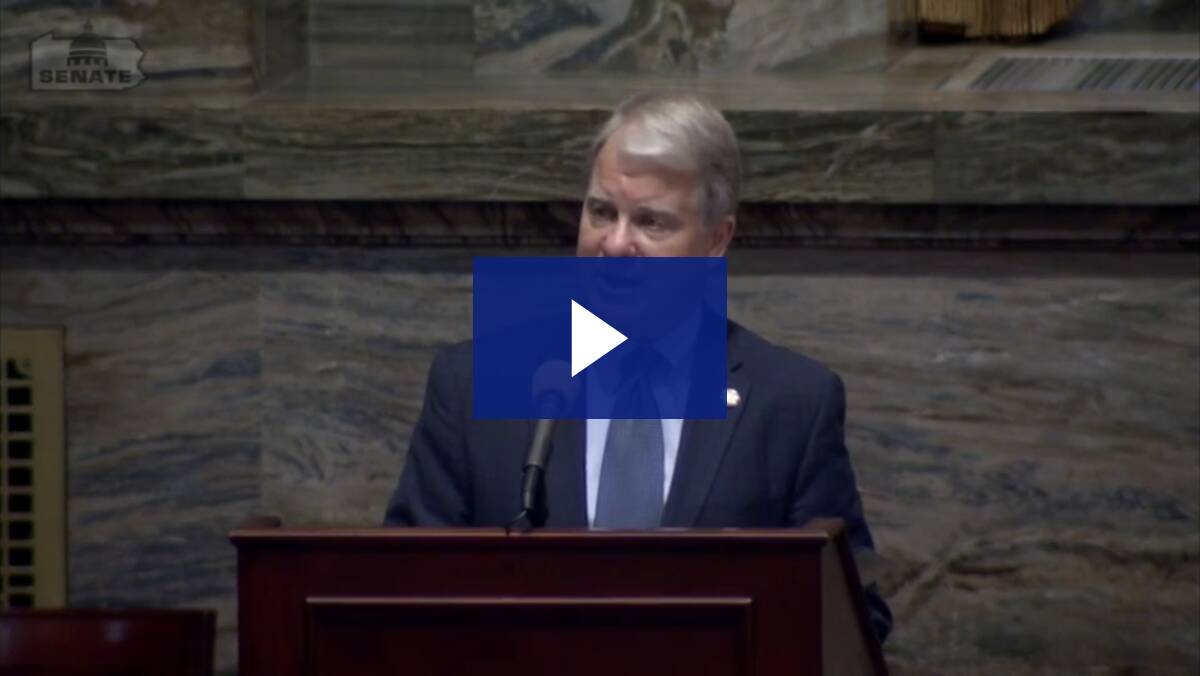
|
|||||
Each month, the Senate State Government Committee prepares a summary of recent meetings of the committee and highlights from the Pennsylvania Senate. Here is this month’s “State Government Chairman’s Report”. As always, if you have any suggestions for a future edition or concerns you would like to see the State Government Committee address, please do not hesitate to contact me.
Primary election results: the first quacks of a lame-duck governor?The results from this year’s primary elections are in and Pennsylvania voters have made their voices heard–in a landslide. After months of bipartisan criticism of the unilateral approach Governor Wolf and his administration took when responding to the COVID-19 pandemic, a large majority of voters favored two ballot questions that would require legislative approval of emergency declarations longer than 21 days in the future–Republican governors, Democratic governors, third party or Independent governors. Pennsylvania has thus become the first state in the nation where voters have chosen to limit the governor’s emergency powers by constitutional amendment. The same issue is now under review in many other states, states with both Republican and Democratic governors who have been criticized for taking actions on their own for more than a year, without the approval of the voters, local governments, or the legislative branch. A reporter from the Pennsylvania Capitol-Star questioned whether this defeat for the Wolf Administration marked “the first quacks of a lame-duck governor,” after voters made their feelings clear about how much power the executive branch should wield during an emergency. Read the full article here. State Government Committee holds first hearing on congressional redistrictingI recently chaired a hearing of the Senate State Government Committee that discussed the redrawing of congressional districts. The committee heard testimony about the science of map-making, demographic trends in rural and urban areas of the state, and recommended map criteria. New congressional maps are drawn by the State Government Committee every ten years after the completion of the Census. This decade’s redrawing process comes with even more controversy than normal, because Pennsylvania’s lagging population growth led to the loss of one seat in the House of Representatives. This means there will be 18 incumbent Congress members and 17 available seats for the 2022 election. The following are my key takeaways from the hearing:
One of my goals in my role as the chair of the State Government Committee is to begin to roll back the hyper-partisan gerrymandering sins of the past and the information gathered during this hearing was an important step in this process. Visit this link to learn more. Pennsylvania unemployment 7th highest in the nation as employers struggle to find workers
Despite the continuing decrease in cases of COVID-19 and increase in vaccine doses administered, Pennsylvania’s unemployment rate increased to 7.4% in April. This is the 7th highest rate in the United States and is significantly higher than the national unemployment average of 6.1%. Business groups such as the National Federation of Independent Business (NFIB) have pointed to Pennsylvania’s continuing participation in the federal supplemental unemployment benefit program, which provides $300 extra a month to unemployment recipients, as a cause for our state’s lagging unemployment rate. NFIB state director for Pennsylvania Greg Moreland noted that, “While the restrictions on businesses, put in place by the executive branch, are coming to an end, there remains one central theme as to why workers are resistant to return to the workforce: They are making equal, or in some cases more, money receiving unemployment compensation than they would if they had returned to gainful employment.” As we continue to recover from the COVID-19 pandemic, our state government should be encouraging Pennsylvanians to return to the workforce, not incentivizing them to stay home. Learn more here and here. PA Supreme Court follows my bipartisan bill to depoliticize Legislative ReapportionmentFormer University of Pittsburgh chancellor and law professor Mark Nordenberg was selected to chair the Legislative Reapportionment Committee. Nordenberg will have a crucial role in the upcoming process of redrawing districts for the Pennsylvania House and Senate, as he could be a tie-breaking vote on the five-person commission that also includes the Majority Leaders and Minority Leaders in the House and the Senate. I recently introduced a bill that was passed unanimously by the Senate State Government Committee that would establish qualifications to ensure the chair of this commission is nonpartisan and does not have any political ties. Fortunately, Nordenberg meets the qualifications outlined in my bill and his appointment was praised by members of the House and Senate on both sides of the aisle. I wish him the best of luck as he steps into this critically important role.
|
|||||
|
|||||




Want to change how you receive these emails? 2026 © Senate of Pennsylvania | https://www.senatorargall.com | Privacy Policy |


